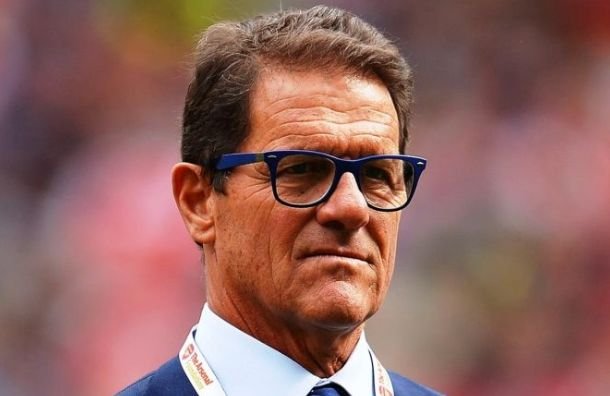Fabio Capello

Fabio Capello se destacó como jugador y consolidó su legado como entrenador, imponiendo disciplina táctica y solidez defensiva en equipos de élite. Su éxito en el AC Milan, Real Madrid y otras instituciones lo convirtió en un referente de liderazgo estratégico. Su enfoque pragmático influyó en generaciones de entrenadores y sigue siendo una voz autorizada en el análisis del juego.
La pasión de Fabio Capello por el fútbol
Desde sus primeros años en San Canzian d’Isonzo, Fabio Capello mostró una inclinación por la disciplina y la competencia. Criado en una familia donde el deporte tenía un papel importante, su desarrollo en el fútbol estuvo marcado por una mentalidad rigurosa y meticulosa, rasgos que más tarde definirían su estilo de dirección técnica. Su pasión por el fútbol no solo lo convirtió en un jugador destacado, sino que también sentó las bases para una carrera de entrenador caracterizada por el análisis profundo del juego y la exigencia táctica.
Etapa como Jugador: la base de su filosofía
Capello se desempeñó como centrocampista en clubes de renombre como SPAL, Roma, Juventus y AC Milan. Durante su paso por la Juventus y el Milan, su juego combinaba inteligencia táctica con una gran capacidad de liderazgo. Su rol en el campo no se limitaba a la recuperación del balón, sino que también incluía la organización del equipo, un rasgo que posteriormente se reflejaría en su estilo como entrenador.
Uno de los momentos más memorables de su carrera como jugador fue su gol con la selección italiana contra Inglaterra en Wembley en 1973, una victoria histórica para Italia. Este hito no solo demostró su calidad técnica, sino también su mentalidad competitiva en los momentos decisivos.
De jugador a entrenador: un salto natural
Tras su retiro, Capello canalizó su conocimiento del juego en la dirección técnica. Su primera gran oportunidad llegó en el AC Milan en 1991, donde impuso un modelo basado en la solidez defensiva y el control del juego. Su Milan no sólo dominó Italia, sino que también dejó una marca en Europa con un equipo que combinaba seguridad en el fondo con una capacidad ofensiva contundente.
Bajo su dirección, el Milan ganó múltiples títulos de la Serie A y una Champions League en 1994, con una histórica victoria 4-0 sobre el FC Barcelona en la final. Este partido consolidó su reputación como un estratega meticuloso que sabía cómo desarticular a los equipos rivales.
Capello en el Real Madrid: una filosofía inquebrantable
El Real Madrid recurrió a Capello en dos etapas distintas, confiando en su capacidad para devolver la estabilidad táctica a un equipo plagado de talento ofensivo. En ambas ocasiones, logró el título de LaLiga, aunque su estilo de juego disciplinado generó críticas en un entorno acostumbrado al fútbol de espectáculo.
A pesar de las diferencias con la filosofía de juego del club, su enfoque táctico funcionó. En su última temporada con el Madrid (2006-07), llevó al equipo a una remontada impresionante en la liga, superando al Barcelona en la recta final del campeonato. Su salida tras ese título reflejó la incompatibilidad entre su método y las expectativas del club, pero dejó claro que su convicción y pasión por el fútbol eran inquebrantables.
Un entrenador con principios firmes
Más allá de sus logros en clubes, Capello llevó su filosofía a la selección de Inglaterra y posteriormente a Rusia. Su enfoque no siempre se adaptó al estilo de los equipos nacionales, pero mantuvo su exigencia en cada puesto que ocupó. Inglaterra logró clasificar con solvencia al Mundial 2010 bajo su mando, aunque la rigidez de su estilo no terminó de encajar con la dinámica del fútbol internacional.
Influencia en el fútbol y legado
Capello representa una escuela de entrenadores que prioriza la disciplina y la estructura sobre la improvisación. Su legado se refleja en entrenadores posteriores que han sabido integrar la solidez defensiva en equipos ofensivos sin sacrificar la efectividad. Figuras como Antonio Conte y Diego Simeone han tomado elementos de su enfoque, aplicándolos en equipos que combinan intensidad con organización táctica.
Su impacto en clubes como Milan, Real Madrid y Roma va más allá de los títulos. La transformación de estos equipos bajo su dirección mostró cómo la pasión por el detalle y la planificación pueden ser tan determinantes como el talento individual.
Capello y su vida después del fútbol
Tras retirarse como entrenador, Fabio Capello continuó ligado al fútbol como comentarista y analista. Su estilo directo y su enfoque crítico siguen siendo una referencia para la interpretación táctica del juego. Aunque alejado de los banquillos, su influencia se mantiene vigente, especialmente en el análisis del fútbol moderno y en la valoración del equilibrio entre defensa y ataque.
Capello nunca se dejó llevar por modas pasajeras en el fútbol. Su carrera es un testimonio de que la disciplina y la convicción pueden marcar la diferencia en un deporte que a menudo se inclina hacia el espectáculo antes que hacia la efectividad. Su legado sigue vivo en cada equipo que prioriza la solidez como base del éxito.
